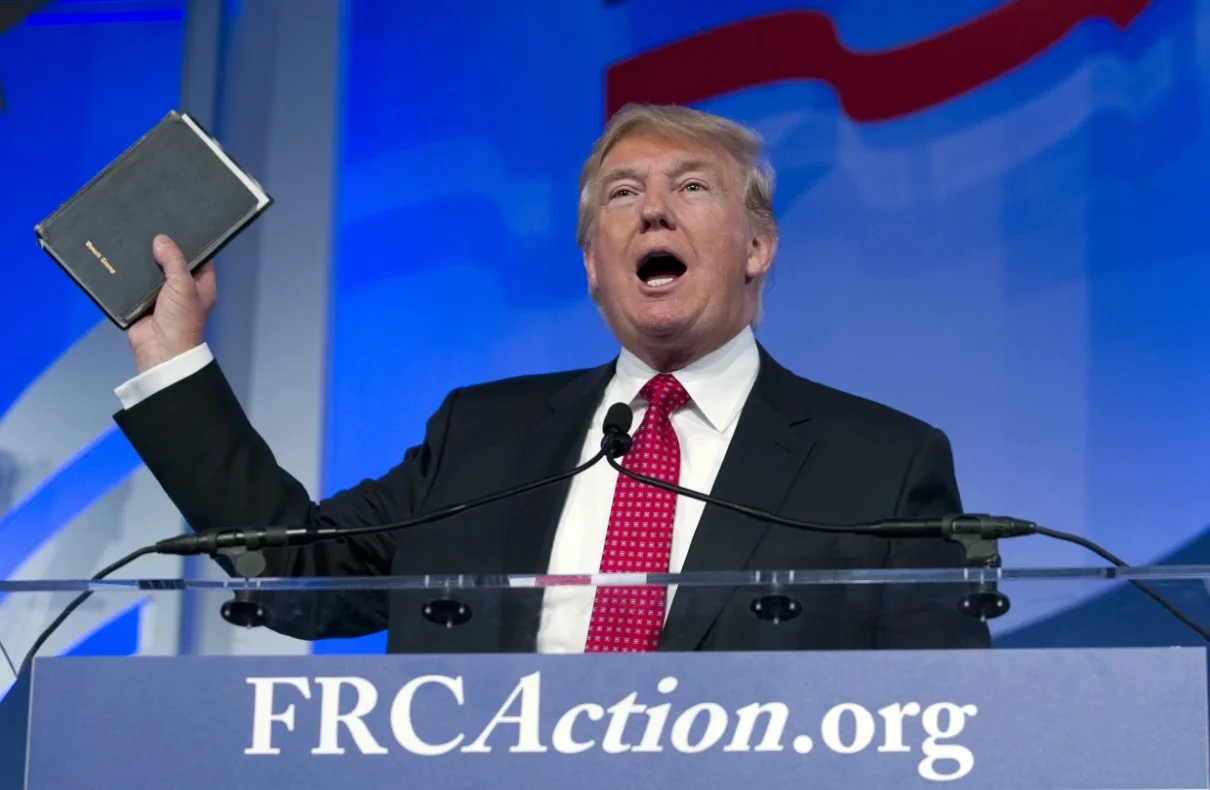
Abortion has long been a contentious issue in American politics, and former President Donald Trump has recently expressed private support for a 16-week abortion ban. This revelation has sparked debate and speculation about his stance on reproductive rights.
Former President Donald Trump has been notoriously guarded about his views on abortion since the landmark Supreme Court decision of Roe v. Wade. However, according to multiple sources with direct knowledge of his deliberations, Trump has privately expressed support for a 16-week abortion ban. This ban would allow for exceptions in cases of rape, incest, or to save the life of the mother.
It is important to note that Trump’s support for this ban is not yet public. The former president has reportedly chosen to keep his opinions on abortion close to his chest until after the Republican presidential primary. This strategic move aims to avoid alienating social conservatives before securing the nomination.
A 16-week abortion ban, if enacted, would impose more significant restrictions on reproductive rights compared to the current legal framework established by Roe v. Wade. Under the Supreme Court decision, abortions are generally permitted until the point of fetal viability, which is around 24 weeks of pregnancy. By reducing the time window for legal abortions, a 16-week ban would limit access to abortion services for many individuals.
The exceptions proposed by Trump, namely cases of rape, incest, or to save the life of the mother, are consistent with the prevailing exceptions in most abortion regulations. However, the debate around these exceptions remains divisive, with pro-choice advocates arguing for broader access to abortion services and fewer limitations.
Donald Trump Disqualified From Maine Ballot
Trump’s approach to abortion has been characterized as transactional, with his views on the issue evolving over time. Since his entry into politics in 2015, he has approached abortion from a political standpoint, aligning his position with what he believes will garner support from his base and secure electoral victories.
This transactional approach is evident in Trump’s vetting process for potential running mates. According to reports, he dismisses candidates who do not align with his proposed exceptions for a 16-week ban. This strategic move highlights Trump’s belief that Republicans who do not support these exceptions are less likely to succeed in elections.
While Trump has not publicly disclosed his position on abortion, his actions as president have had a significant impact on reproductive rights. During his tenure, he appointed three conservative justices to the Supreme Court, including Amy Coney Barrett, Brett Kavanaugh, and Neil Gorsuch.
These appointments have shifted the balance of the Supreme Court towards a more conservative ideology, raising concerns among pro-choice advocates. With the Court now leaning conservative, there is increased speculation about the potential for future challenges to Roe v. Wade and the possibility of more restrictive abortion regulations.
Abortion has been a deeply divisive issue in American politics for decades. The Supreme Court’s decision in Roe v. Wade in 1973 established the constitutional right to abortion, but it has faced ongoing challenges from anti-abortion activists and conservative politicians.
Shooting at Rental House in Texas Leaves Three Dead and Two Injured
Over the years, states have implemented various restrictions on abortion, ranging from waiting periods and mandatory counseling to targeted regulations on abortion providers (TRAP laws). These regulations have made it increasingly difficult for individuals to access abortion services, particularly in conservative-leaning states.
News of Trump’s private support for a 16-week abortion ban has sparked outrage and concern among pro-choice advocates. They argue that such a ban would further limit reproductive rights and disproportionately affect marginalized communities, who often face the greatest barriers to healthcare access.
Pro-choice organizations are mobilizing to protect and expand reproductive rights, pushing back against proposed restrictions and advocating for policies that prioritize individual autonomy and bodily integrity.
The Republican Party has historically aligned itself with anti-abortion sentiments, with many party members actively working to restrict access to abortion services. The issue of abortion has been a central focus of conservative campaigns, appealing to socially conservative voters who prioritize pro-life values.
However, the Republican Party is not monolithic in its views on abortion. There are factions within the party that hold more moderate positions, advocating for exceptions and a more nuanced approach to reproductive rights. Trump’s private support for a 16-week ban reflects the delicate balancing act that politicians often navigate within the party.
If a 16-week abortion ban were to become law, it would significantly impact abortion access in the United States. Women and individuals seeking abortions would face stricter time limitations, potentially leading to increased logistical and financial challenges.
Rare Migrants Footage Shows Catch to ‘The Beast’ Train to US
Moreover, the ban could disproportionately affect individuals from low-income backgrounds and marginalized communities who may already face barriers to healthcare access. Limited access to safe and legal abortion services can lead to increased rates of unsafe abortions, which pose significant risks to individuals’ health and well-being.
Public opinion on abortion has remained relatively stable over the years, with a significant portion of the population supporting access to abortion services. However, it is worth noting that opinions on specific restrictions, such as gestational limits, exceptions, and state-level regulations, can vary significantly.
As the debate around a 16-week abortion ban unfolds, public opinion will play a crucial role in shaping the outcome. Pro-choice advocates will continue to mobilize and raise awareness about the potential consequences of restrictive abortion policies, while anti-abortion activists will rally in support of more stringent regulations.
The revelation of Trump’s private support for a 16-week abortion ban has reignited the contentious debate around reproductive rights in the United States. As the issue continues to unfold, it is essential to consider the implications of such a ban on abortion access, the evolving landscape of abortion politics, and the ongoing fight for reproductive justice. The future of abortion rights in America remains uncertain, but the voices of advocates on both sides of the debate will undoubtedly shape the conversation moving forward.
